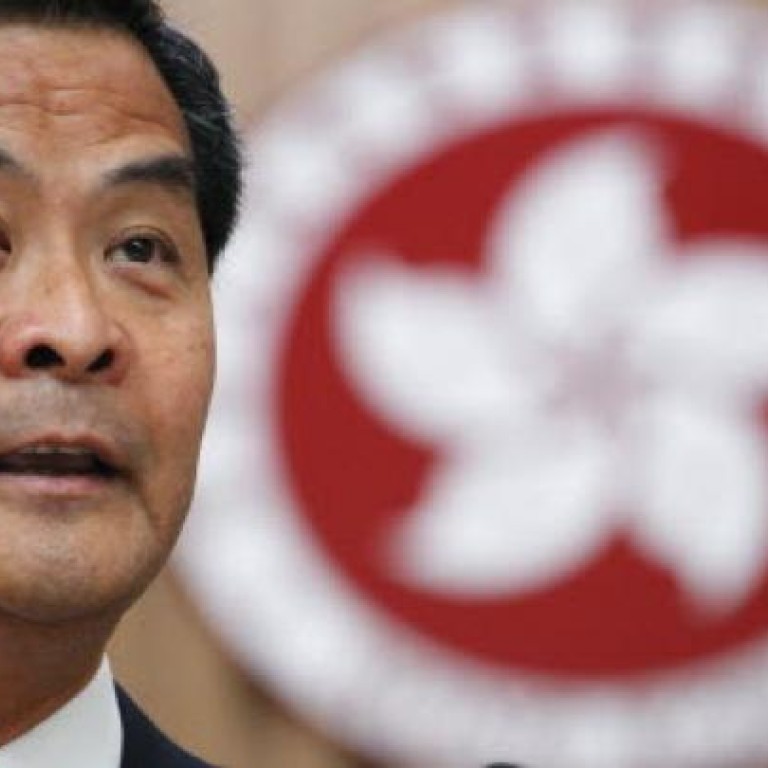
Hong Kong's Leung backs down on Chinese patriotism lessons
Hong Kong’s government on Saturday backed down on a plan to force school children to take Chinese patriotism classes, after weeks of protests and on the eve of crucial legislative polls.
“The amendment of this policy means that we are giving the authority to the schools,” the city’s leader, Leung Chun-ying, told reporters a day after activists said more than 100,000 protesters rallied at government headquarters.
“The schools are given the authority to decide when and how they would like to introduce the moral and national education,” he added, blaming the mandatory nature of the policy on his predecessor’s government.
The proposal to introduce mandatory “national education” classes in all schools from 2016 was condemned as brainwashing by students and teachers, and sparked weeks of protests that brought scores of thousands onto the streets.
The government said the subject was important to foster a sense of national belonging and identity, amid rising anti-Beijing sentiment in the semi-autonomous southern city of seven million people.
Schools were meant to adopt the subject voluntarily this year but many said they wanted more guidance from the government about how it should be taught.
A survey released last week showed 69 percent of students opposed the classes.
Course material funded by the government extolled the benefits of one-party rule, equated multi-party democracy to chaos, and glossed over events like the bloody Tiananmen crackdown and the mass starvation of Mao’s regime.
Lawmaker Anna Wu, who chaired a committee studying the policy, said the government had decided on a course of action that was “the most inclusive and most liberal”.
“It is also very consistent with academic freedom and therefore I support this move,” she said.
The former British colony goes to the polls on Sunday to elect a new 70-seat legislature, which will play a crucial role on the city’s path to direct elections for its leader in 2017 and the legislature by 2020.
Pro-democracy parties were using the education furore to galvanise their supporters, hoping to boost their representation in parliament and maintain a veto over constitutional amendments.
Leung took office in July after being put in power by a small committee of mainly pro-Beijing elites.
